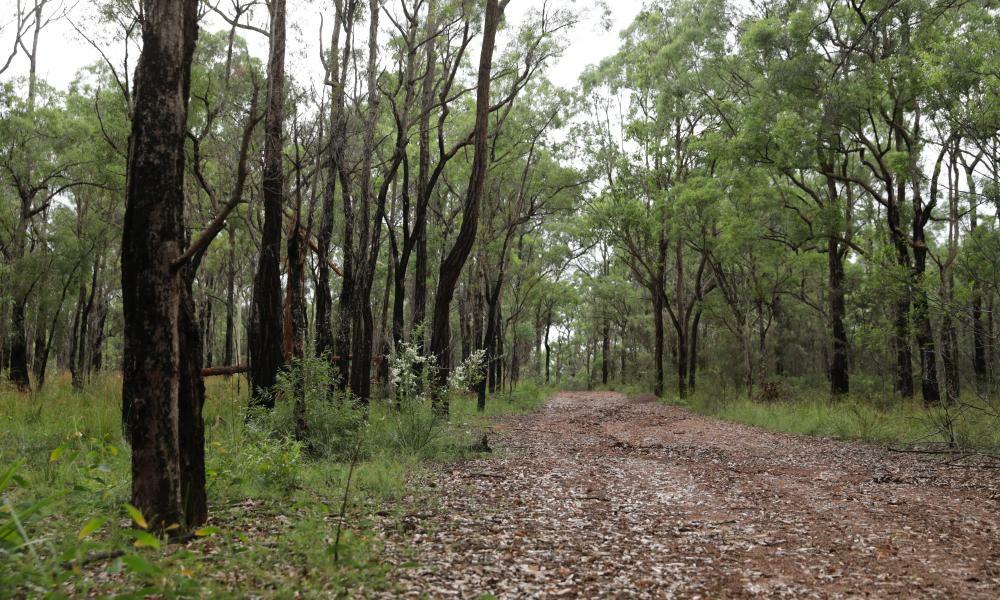11 Dec 2024

Tired Earth
By The Editorial Board

A NSW parliamentary inquiry has been told that environmental offsetting should no longer be allowed for habitats such as the critically endangered Cumberland Plain woodland. Photograph: Carly Earl/The Guardian
Environmental offset policies are failing to halt the decline of wildlife and certain habitats should now be off limits to development, a New South Wales parliamentary inquiry has heard.
MPs have also been told the NSW government needs to reform a scheme that allows for the financial trade of environmental offset credits on private land so that there are clear rules for managing conflicts of interest and the potential for insider trading, after revelations in a Guardian Australia investigation.
The inquiry into the integrity of the state’s environmental offsetting regime comes after Guardian Australia reported on serious failures in a system that is supposed to compensate for the environmental destruction that occurs as a result of development.
This has included promised offsets that were never delivered, so-called double-dipping where sites with existing protections have been used as an environmental offset, and coalmining companies counting future mine rehabilitation towards their offset requirements.
At a hearing on Friday, professional bodies and environment groups said offsetting should no longer be permissible for certain habitats in NSW that were now so endangered they were on the brink of extinction, including breeding habitat for the critically endangered regent honeyeater.
“At some point there will be no available offset and I think that is one of the major problems of the scheme – that there is no threshold where you say, ‘OK, with this critically endangered community we’re no longer using offsets, we’re going to avoid [further damage]’,” said Andrew Lothian, the treasurer of the Ecological Consultants Association of NSW.
The association’s president, Belinda Pellow, told the hearing that habitats such as the critically endangered Cumberland Plain woodland, which is subject to some of the most intensive development in western Sydney, “should be a no-go area now”.
Georgina Woods, from the anti-mining group Lock the Gate, said any ecosystem that was critically endangered should be considered a “red line”.
The hearing also heard that a scheme that allows for the financial trade of environmental offset credits on private land – known as the biodiversity stewardship scheme – requires reform.
Professional organisations that represent ecological consultants, landowners and developers who participate in the scheme said it lacked transparency, was too complex for an average landowner to participate in, and changes were needed to improve “trust and accountability”.
Under the NSW environmental offsetting system, private landholders are able to permanently conserve their land under an agreement with the state government.
Credits are assigned to properties and can then be bought by developers as offsets for the environmental damage caused by projects.
Earlier this year, Guardian Australia revealed that consultants from a company that advised governments on major developments in NSW made windfall gains of tens of millions of dollars by selling offsets to the government for those same developments.
The Environment Institute of Australia and New Zealand, which represents environmental professionals, told Friday’s hearing changes were necessary to improve the management of conflicts of interest.
“We certainly believe that is a major concern. The Guardian article certainly highlighted the potential conflict,” the organisation’s president, Bryan Jenkins, told the hearing.
Jenkins said unlike in other markets that involved financial trade, the fit-and-proper-person test for participation in the stewardship scheme “does not include how you manage insider trading” and the government needed to develop rules and guidelines “to clarify situations considered to be conflicts of interest”.
Jenkins said the institute was working on its own proposal for potential improvements and was considering how practices from other industries could be applied to the trading of offset credits.
“We would like to see real improvements around how you manage to avoid insider trading,” he said.
Jeffrey and Jack Bulfin, of the Deep River Group, a consultancy that assists residential developers with planning matters including offsetting, said they were supportive of the offsets scheme remaining in place but that reforms to improve trust and accountability were necessary.
Jack Bulfin told the hearing that a public register that recorded trades of credits and prices did not provide a true insight into how the market was operating or what credit prices could be.
He said this, combined with the complexity involved in establishing a stewardship site, made the scheme difficult for average landholders to participate in.
“My experience would be that the complexity of registering a site is so complex that an average person could not participate without significant guidance from lawyers and ecologists,” Bulfin said.
He said the government also needed to develop a better system for disclosures that could be considered conflicts of interest.
“We need disclosures in place so the whole process is adequately transparent and it’s not at the moment,” he said.
“The transaction register is not transparent enough nor is the management of conflicts of interest.”
The chair of the inquiry, the NSW Greens MLC Cate Faehrmann, said much of the evidence heard was “extremely concerning”.
“The offsets scheme is looking more and more like a scheme for extinction than one meant to halt and reverse biodiversity decline,” she said.
Source : theguardian.com
Comment